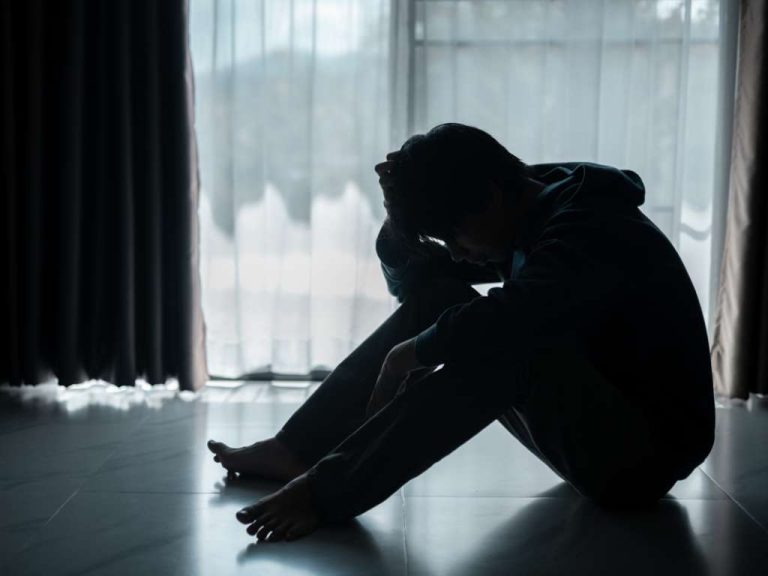Heroin Addiction and Information | How and Why Recovery from Heroin
Heroin Addiction: Breaking Down the Real Struggles
Heroin addiction is one of the most challenging and dangerous forms of substance abuse. If you or someone you know is struggling with heroin addiction, it can often feel like there’s no way out. But here’s the thing—addiction, even heroin addiction, isn’t something you have to face alone, and it’s never too late to seek help.
What is Heroin Addiction?
First, let’s break it down. Heroin is a powerful opioid that is derived from morphine. When people use heroin, it creates an intense feeling of euphoria, almost like a wave of relief and pleasure that floods the body. But the high doesn’t last long, and that’s where the problem starts. The more someone uses heroin, the more their body becomes dependent on it, and that’s when addiction sets in.
Heroin addiction is when someone becomes so reliant on the drug that they feel they can’t live without it. Over time, the drug hijacks your brain and body, making it feel impossible to stop.
The Science Behind Heroin Addiction: Why It’s So Hard to Quit
Here’s the tough part: heroin addiction messes with your brain in a big way. Heroin binds to opioid receptors in your brain. This releases a large amount of dopamine. That’s what causes those intense feelings of pleasure. This rush of dopamine strengthens the behavior. It makes your brain want that feeling again and again.
The problem is, over time, your brain gets used to those high levels of dopamine. The more you use, the more your tolerance builds, meaning you need more heroin to get the same high. This creates a vicious cycle where you need the drug just to feel normal. And when you try to stop, your brain doesn’t know how to function without it.
Heroin addiction isn’t just about physical dependence. It also has a strong psychological hold. Users often find themselves caught in the emotional and mental battle between wanting to stop and being consumed by the urge to use again. It becomes a way to cope with pain, stress, or even boredom. But the longer you use, the harder it is to break free.


🔹 Need support with addiction recovery? Get a free consultation.
📞 Phone: +88 01716623665
📞 Call Us NowWhy Do People Get Addicted to Heroin?
Now, you might be wondering, “How does someone even get started with heroin?” It often begins with a prescription for painkillers, like oxycodone or hydrocodone. Some people start using opioids for pain relief and, over time, their tolerance builds. When prescribed drugs are too hard to find or too expensive, some people may use heroin. It’s cheaper and easier to get.
Other factors can contribute to heroin addiction, including:
- Genetic and Family History: A family history of substance abuse can make you more likely to develop addiction. Certain genetic traits make it harder for some people to resist the allure of drugs like heroin.
- Mental Health Issues: Many people who use heroin struggle with mental health problems, such as anxiety, depression, or PTSD. Using heroin can provide temporary relief from these feelings, making it an appealing escape. But, unfortunately, it’s a dangerous cycle that only worsens the emotional pain in the long run.
- Environmental Factors: Peer pressure, stress, or growing up around drug use can raise the risk of addiction. The availability and accessibility of heroin in certain areas may also play a significant role.
- Chronic Pain: Some people with chronic pain may turn to heroin after they’ve become dependent on prescription painkillers. When their prescriptions run out or are no longer enough to manage their pain, they may turn to heroin to fill that void.
Signs of Heroin Addiction: How Do You Know If Someone Is Addicted?
Heroin addiction doesn’t always look like what you see in movies or on TV. Many people who struggle with heroin addiction try to hide it for as long as they can. But there are some key signs that can point to addiction:
- Increased Tolerance: They require more heroin to feel the same high. This is a clear sign of addiction.
- Withdrawal Symptoms: Without the drug, they might feel strong withdrawal symptoms. These can include nausea, sweating, shaking, and intense cravings.
- Physical Appearance Changes: Heroin can lead to weight loss, skin problems, and poor hygiene.
- Neglecting Responsibilities: Heroin addicts often ignore their jobs, school, or family duties. Their focus shifts to getting and using the drug.
- Behavioral Changes: People with heroin addiction often face extreme mood swings, depression, anxiety, and paranoia.
- Financial Issues: Heroin costs a lot. Users often spend a big chunk of money to keep using it. They may resort to illegal activities or borrowing money to fund their addiction.
For a free consultation on rehab services, contact us at: Call Us: +88 01716623665

How Do You Break Free from Heroin Addiction?
Overcoming heroin addiction is tough. It takes time, support, and patience. Yet, it is possible with the right treatments. If you or someone you know is struggling with heroin addiction, here’s how to help:
- Detoxification: The first step is detox. This process clears heroin from the body. It can be painful and challenging, with withdrawal symptoms like nausea, sweating, and anxiety. Detox should happen in a medical setting, where doctors and nurses can help manage symptoms.
- Medication-Assisted Treatment (MAT): Medications such as methadone or buprenorphine can ease cravings and withdrawal. These medications don’t produce a high. Instead, they help stabilize the body and reduce the urge to use heroin. MAT is crucial for long-term recovery.
- Therapy and Counseling: After detox, therapy becomes key. Cognitive-behavioral therapy (CBT), contingency management, and other therapies address the psychological side of addiction. They teach healthier coping skills and ways to avoid relapse.
- Support Groups: Groups like Narcotics Anonymous (NA) offer community and shared experiences. Connecting with others who have faced similar struggles can help someone feel understood and supported.
- Family Support: Recovery involves more than just the individual. Families play a vital role, providing emotional support and understanding as their loved ones strive for sobriety.
- Aftercare Programs: Long-term recovery often includes aftercare programs. These programs provide ongoing therapy, support groups, and check-ins to help individuals stay on track and avoid old habits.
Why Some Resources Are Better for Helping with Heroin Addiction
Dealing with heroin addiction can be frightening. Not all resources are equal. Some websites and programs only want to sell something. The best ones understand addiction’s complexity. They offer tailored treatments and support from people who have overcome addiction.
Look for websites or rehab centers that provide information and community support. Places that encourage open talks about addiction and offer practical advice are usually the best for recovery.
Call to Action: Take the First Step Toward Recovery
Heroin addiction may feel impossible to overcome, but there is hope. It’s tough and painful, but you don’t have to face it alone. Reach out for help—whether from a professional, a support group, or a trusted friend or family member. Recognizing you need help is the first step, and you’ve already taken it by reading this.
Don’t wait for things to worsen. Take action now and begin your healing journey. Resources are available to guide you step by step through recovery. You’ve got this, and you don’t have to do it alone. Reach out, ask for help, and take that first step toward a brighter tomorrow.
🔹 Need support with addiction recovery? Get a free consultation.
📞 Phone: +88 01716623665
📞 Call Us NowSmoking Addiction – Learn how to overcome smoking addiction.
Alcohol Addiction – Find effective solutions for alcohol addiction.
Marijuana Addiction – Get the help you need to overcome marijuana addiction.
Yaba Addiction – Learn How to Overcome Yaba Addiction.
Drug Addiction Treatment – Explore comprehensive drug addiction treatment options.
Liquid Drug Addiction – Find recovery solutions for liquid drug addiction.
Sleeping Pill Addiction – Get support for overcoming sleeping pill addiction.
